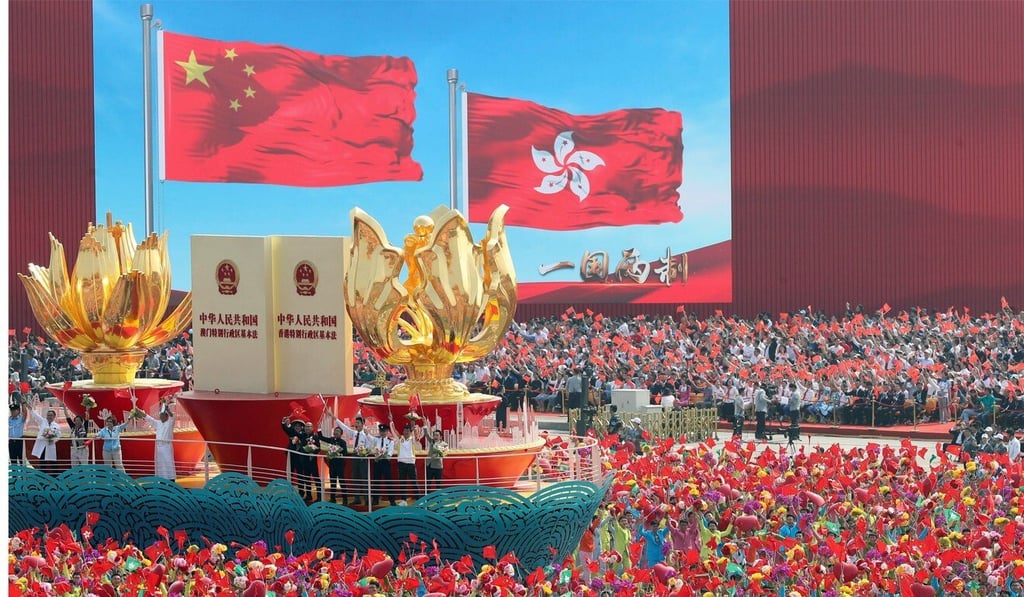Hong Kong chamber chief Aron Harilela calls for early dialogue with Beijing to settle ‘post-2047 uncertainty’
- Outgoing Hong Kong General Chamber of Commerce chairman says residents, foreign investors need to know what lies ahead
- ‘Complicated issues’ ought to be thrashed out by officials, all political parties and sectors

Tycoon Aron Harilela, head of the city’s largest business chamber, has called for a dialogue between Hong Kong and Beijing on the city’s future beyond 2047 to remove uncertainty troubling residents and foreign investors.
“If we are asking multinational companies to set up their regional headquarters here, how can we ask them to spend hundreds of millions of dollars to come to Hong Kong if we can’t give them some certainty of the financial landscape, the business law and the common law?” he said.
“If you want to tell people, come and live in my city, come and invest here, you need to give them security.”

Hong Kong-born Harilela, 49, is chairman of the Harilela Group, which was founded by his late father, Hari, and is involved in hotels, real estate and trading. He steps down on May 15 after two years as chairman of the 4,000-member Hong Kong General Chamber of Commerce.
In an interview with the Post, he praised the Hong Kong government’s handling of the Covid-19 pandemic, but said it needed to heal divisions caused by months of social unrest which erupted last June.
Calling 2047 “a complicated issue”, he said: “We must address 2047 now. We must start the dialogue with Beijing now.”